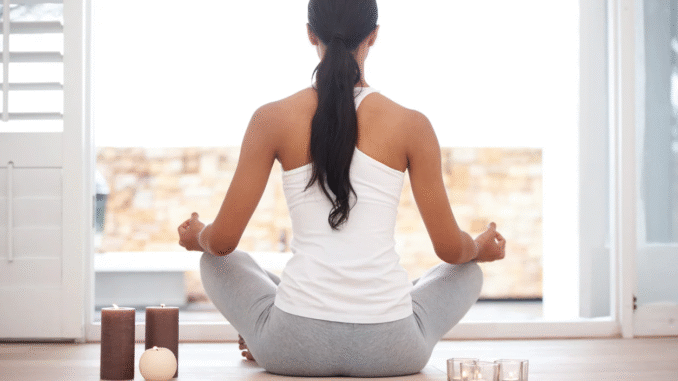
10 Simple Habits to Boost Your Mental and Physical Well-Being
In today’s fast-paced world, maintaining a balance between mental and physical health is more crucial than ever. Often, we focus too much on one aspect of our health while neglecting the other, but true well-being stems from nurturing both the mind and body. Fortunately, it doesn’t require drastic changes to experience improvements in your overall health. Here are 10 simple habits that can make a big difference in boosting your mental and physical well-being.
1. Start Your Day with Hydration
One of the easiest yet most effective habits to improve both mental and physical health is staying hydrated. Drinking water first thing in the morning rehydrates your body after a long night’s sleep, jump-starts your metabolism, and improves your mental clarity.
Studies have shown that even mild dehydration can cause fatigue, difficulty concentrating, and mood swings. Aim for at least 8 ounces of water as soon as you wake up, and continue sipping throughout the day to stay hydrated. Adding a slice of lemon or cucumber can also help detoxify your system and improve digestion.
2. Incorporate Physical Activity Into Your Routine
Exercise doesn’t have to be intense to reap the benefits for both your body and mind. Regular physical activity increases endorphins (the “feel-good” hormones), which can help alleviate stress, anxiety, and depression. Even a brisk 20-minute walk each day can improve cardiovascular health, boost energy, and enhance your mood.
For those with busier schedules, consider incorporating movement into your daily tasks, such as taking the stairs instead of the elevator, doing stretches while watching TV, or engaging in a short workout during your lunch break.
3. Practice Mindful Breathing or Meditation
Mental clarity is just as important as physical health, and one of the most effective ways to improve it is through mindfulness practices such as meditation and deep breathing exercises. These practices help calm the mind, reduce stress, and improve focus.
Start with just 5-10 minutes of mindful breathing or meditation every day. You can use apps like Headspace or Calm, or simply sit in a quiet place, close your eyes, and focus on your breath. Over time, you’ll notice increased mental clarity, reduced anxiety, and a greater sense of calm.
4. Eat a Balanced, Whole-Foods Diet
What you eat directly impacts your mental and physical health. A diet rich in whole, nutrient-dense foods such as fruits, vegetables, lean proteins, and whole grains provides the essential vitamins and minerals needed for optimal brain and body function.
For mental clarity, focus on foods high in omega-3 fatty acids (like salmon and walnuts), antioxidants (like berries and spinach), and vitamin B-rich foods (such as eggs and leafy greens). By nourishing your body with these whole foods, you’re not only supporting your physical health but also boosting your cognitive performance and emotional stability.
5. Get Enough Sleep
Sleep is often overlooked, but it is one of the most important factors in maintaining overall well-being. The body and brain repair and regenerate during sleep, and a lack of sleep can contribute to stress, mood swings, poor cognitive function, and even physical health issues like heart disease.
Aim for 7-9 hours of quality sleep each night. To improve sleep quality, create a calming nighttime routine, limit screen time before bed, and ensure your bedroom is dark and quiet. Sleep is the ultimate form of self-care, and it plays a significant role in both mental and physical health.
6. Practice Gratitude
Mental well-being isn’t just about reducing stress; it’s also about fostering positive emotions. One of the most effective ways to boost happiness and mental clarity is by practicing gratitude. Focusing on the things you’re thankful for shifts your attention away from negativity and cultivates a positive mindset.
Set aside a few minutes each day to write down 3 things you’re grateful for. Whether it’s your family, your health, or something small like a beautiful sunset, practicing gratitude can increase overall life satisfaction and help you approach life with a more optimistic outlook.
7. Connect with Nature
Spending time outdoors is incredibly beneficial for both your mental and physical health. Nature has a calming effect on the brain, reducing stress and promoting feelings of peace. Whether it’s a walk in the park, hiking in the woods, or simply sitting outside and enjoying fresh air, time in nature can help clear your mind and boost your energy levels.
Studies have shown that spending as little as 20 minutes outdoors can reduce cortisol (a stress hormone) levels and improve mood. Try to incorporate outdoor activities into your routine a few times a week to experience these benefits.
8. Engage in Social Connections
Humans are social creatures, and meaningful connections with others are vital for our mental well-being. Loneliness and isolation can contribute to feelings of depression and anxiety, while social interactions promote feelings of happiness and emotional support.
Make time for friends and family, even if it’s just a quick phone call or a coffee date. Having a strong social support system can help you navigate life’s challenges and improve your overall well-being.
9. Limit Screen Time and Practice Digital Detox
In the digital age, it’s easy to get caught up in screens – whether it’s scrolling through social media, answering emails, or watching TV. However, excessive screen time can negatively impact both your mental and physical health. Overuse of screens has been linked to poor sleep, eye strain, and increased anxiety levels.
Set boundaries for your screen time. Try to unplug for at least an hour before bed, and consider designating “screen-free” times throughout the day, such as during meals or while engaging in hobbies. A digital detox allows you to be more present, reduces stress, and improves sleep quality.
10. Laugh More
Laughter truly is the best medicine. It has been scientifically proven to reduce stress, lower blood pressure, and even boost immune function. Laughter stimulates the release of endorphins, which help improve your mood and foster a sense of well-being.
Find ways to incorporate humor into your daily routine – watch a funny video, share jokes with friends, or enjoy activities that make you laugh. Embracing humor can lighten your mental load and improve your overall mood.
Conclusion
Boosting your mental and physical well-being doesn’t require a complete overhaul of your life. By incorporating these 10 simple habits into your daily routine, you can make significant strides toward improving your overall health. Remember, small consistent changes are often the most effective when it comes to achieving lasting well-being. Start with one or two habits, and as they become second nature, gradually introduce more. Your mind and body will thank you for it!

